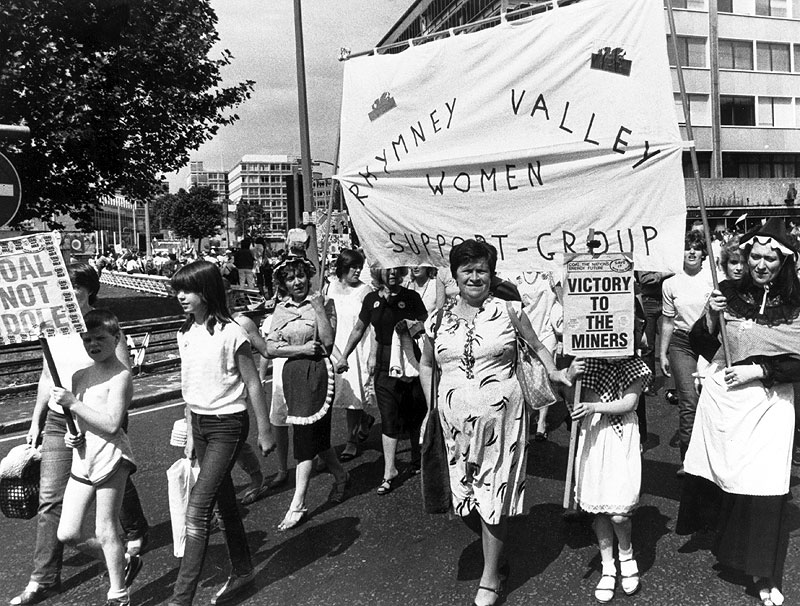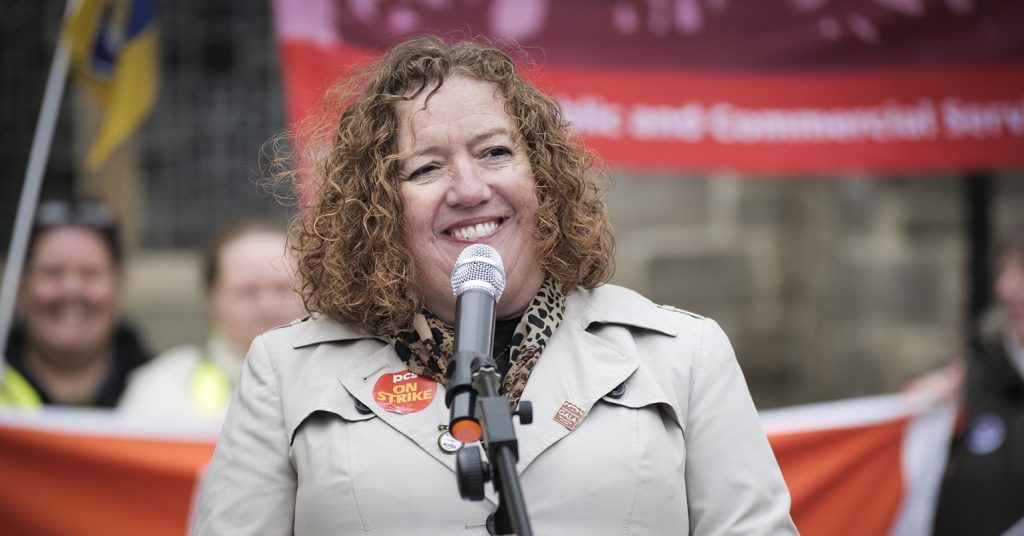Have the Labour Party EVER supported a strike?

Today is the 30th anniversary of the end of the miners’ strike, the climax of Margaret Thatcher’s war against trade unionism. As is traditional, it is marked in the Scottish Parliament by a motion of solidarity from a Labour MSP.
Of course, the Labour Party refused to support the miners during the strike, but from a safe distance of three decades they can’t wait to tell you of their admiration for the men, women and children who went without a penny in pay for almost a year in an effort to safe their jobs and their communities. Well, better late than never I suppose.
Younger readers might be surprised to learn that Labour turned its back on the most important workers’ movement since the General Strike. This was Old Labour, after all, long before the Clause 4 betrayal of Tony Blair and pals. But, it turns out, not only did Labour fail to support the miners, and indeed the General Strike itself, as far as I can tell Labour have never supported even one strike in their entire history.
The closest I’ve come to finding Labour backing for a strike was Keir Hardie’s support of the idea of a general strike against the First World War – but that strike ultimately didn’t happen.
It’s always tough to prove a negative – there’s always the chance that a scrap of evidence will turn up – but despite my asking this question regularly, no supporter or historian of Labour has yet been able to offer an example of the Labour leadership offering its support to striking workers. Ever.
In stark contrast, the Scottish Greens routinely support workers who have found it necessary to take industrial action. Our MSPs and their staff refused to cross the picket line during the recent one-day PCS strike at Holyrood. The party supported the massive N30 strike in November 2011, and plenty of other actions in between.
That commitment to workers’ rights shines through in Green policy too. Our co-convenor Maggie Chapman made the issue central to her European Parliament campaign last year, arguing for EU legislation that would scrap Thatcher’s anti-union laws – laws which Labour left largely untouched in their 13 years in government.
Maggie campaigned for a statutory right to join a union, for employers to be required to recognise the union their workers choose, and to restore the right of workers to ballot for industrial action on any grounds they see fit (not just the limited menu of reasons that Thatcher allowed us).
Right now, Peter McColl is the candidate in our top Westminster target constituency, Edinburgh East. His campaign is focusing on the demand for a national minimum wage of £10 per hour, while Labour are proposing £8 per hour by 2020 – on current trends, only about 65p per hour more than we can expect NMW to be then anyway, and well below what a Living Wage is likely to be.
And at the Scottish Green Party conference last year, the party voted to adopt my policy proposal (based on one from the Green Party of England and Wales) that workers should have the right to buy the companies they work for, just as rural communities have the right to buy the land they live and work on.
The commitment to workers’ rights is one of the top reasons I’m proud to be a Green. Green politics is fundamentally about putting our resources at the service of people, now and for generations to come, rather than corporate profit – and nowhere is that struggle more immediate than in the workplace.
As a Green MSP, I’d involve local trade union branches in all of my work, and fight tooth and nail for working people in Central Scotland and around the world. And I wouldn’t make striking workers wait 30 years for my support.
Gary Dunion is Communications Co-ordinator of the Scottish Greens and a potential Scottish Parliament candidate for Central Scotland. This piece was originally published on his blog here.




Lucy, I was a mineworker and from East Edinburgh which employed hundreds od miners during the said Strike.! I do recall the Labour party of that time with Kinnock who promised to help us. I worked in the deepest mine in Europe, at Monktonhall almost 3 miles outwith East Edinburgh and we left almost 15 million tonnes of coal down there! those 2 shafts, were driven to get to valuable assets, which were abandoned, in my view for a political gain. I do understand and support the new “green” view for the planet but why leave all that under the ground when it should have been extracted? they now talk of new carbon process cleaning and possibly can start up in Peterhead (nigg bay) but I do recall a start up project at Point of Ayr colliery which was actually in Wales, more than 35 years ago to test carbon capture , if I am right.Getting back to the Labour party though, in East Edin. we certainly never got the desired support during the big strike, and around that time Kinnock promised that the Labour party would abolish the house of Lords. the Labour party are still shoving more of their members in there! I now support an Independent Scotland, and may sway from SNP to Green.
Do you really think that the Green Party would have supported the miners in 1984? Leaving aside the issue of CO2 emissions, what about the attacks on lorry drivers transporting coal and iron ore, or the physical attacks on scab miners? The Green Party believes in decentralisation. Surely they wouldn’t approve of how several areas (not just Notts) voted against striking but were still picketed aggressively for almost a year.
I think that the Green Party’s stance would have been much the same as Kinnock’s.
They were certainly very sympathetic to the Wapping strike at News International in 1986.
Although the Labour Party has had many members, including MPs and representatives of its NEC, who have supported strikes they have never had the consensus to back a strike. Unfortunately, there have been three schools of thought that have successively dominated the Labour Party in turn, none of which are conducive to industrial action.
The first school of thought wasn’t a significant break from the Liberal Party, which was presumably why the Liberals were happy enough to have a Lib-Lab pact. Essentially, the Labour Party was about electing Liberal minded MPs from the working classes so that they could represent themselves. In the end, you got fiscal conservatives like Snowden and MacDonald who didn’t understand economics and treated the national economy as nothing more than a balance sheet; they were utterly incapable of addressing the Great Depression as a result.
Next, you got the Keynesians and the nationalisers. A better title would be state socialists, or state capitalists, depending on your philosophical bent. Within this form of collectivism, the Labour Party would see strikes as an attack both on other workers and its own philosophy. In much the same way as the USSR banned strikes, Labour didn’t support them (although more individual MPs back then, including members of cabinet like Tony Benn, did).
Finally, you got the current philosophy of ‘ignore the rich and grow the tax cake.’ In this model, you let business do what it wants as long as tax revenues grow and you do everything you can to remove constraints on people becoming filthy rich. Obvious, you have to ignore that all the extra taxes are spent on things like spiralling housing benefit costs, stagnant wages creating welfare dependency among the full time employed and the expectation of easy profits from the stuff you privatise.
Also, their relationship to the Trade Unions acts as an interesting block to industrial action. The Labour Party thinks it ‘owns’ the Trade Unions and any strike action is a rebellion against the party leadership, especially under its current philosophy. Striking workers are treated as dissenters rather than people in the midst of escalating collective bargaining.